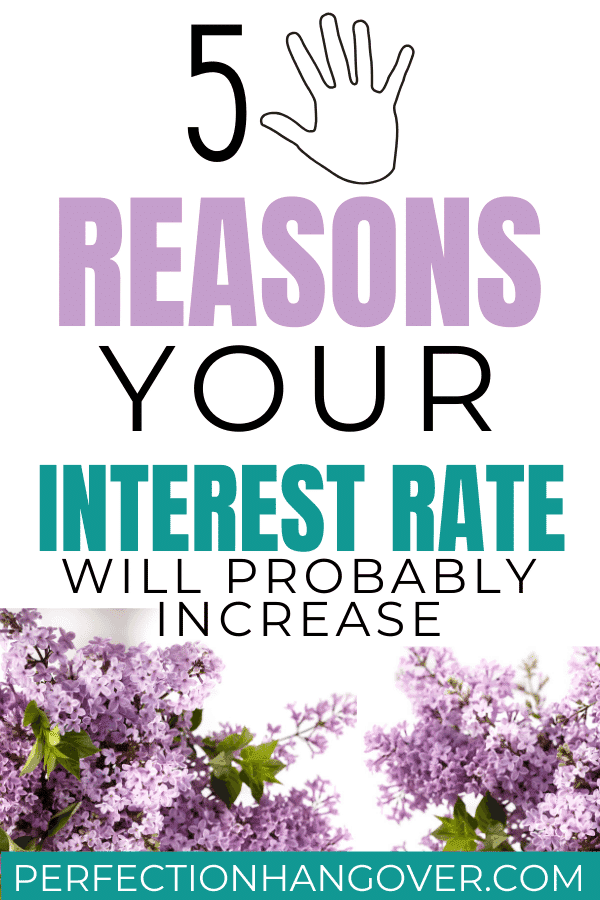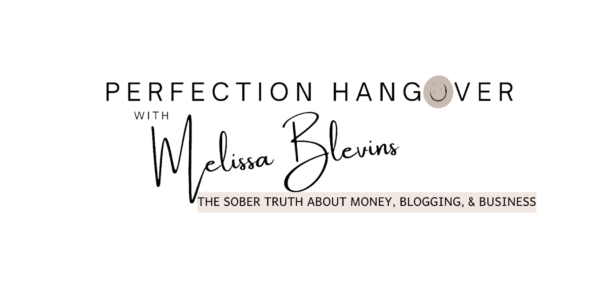This post may contain affiliate links. Click here to read my full disclosure.
Are you scratching your head wondering, “Why did my interest rate increase on my credit card?”
You might be experiencing shock if you just opened your credit card statement to notice a large amount of interest charges.
You’re not alone, friend.
A study from MarketWatch shared that people who might benefit most from a balance-transfer card — those with high balances and, as such, stand to save more money on a lower interest rate — are less likely to open one.
“Only 39% of those earning between $50,000 and $99,999 and 28% of those earning less than $50,000 have applied for a balance transfer card at least once.”
MarketWatch
Say What?!
The article states that wealthier people (those who earn more than $100,000 per year) are more likely to have taken advantage of a balance transfer credit card to save money on interest.
So let’s break down the reasons why your interest rate may have gone up and how you can save large amounts of money (and possibly increase your credit score) by transferring balances to a 0% credit card or personal loan.

1. Your Promotional Rate Expired
This is the first and most common reason that your interest rate will increase. In fact, it happened to me, and I’ll share how it happens to many people.
We sign up for a credit card thinking we’ll have a year to pay the balance in full, so we charge up a large amount over the course of a year and only pay minimum payments (because it’s 0% interest).
This is especially true if you have other debt that you want to pay off faster because the payment or interest rates are higher.
Let’s take a look at the cost of allowing your promotional rate to expire:
Let’s assume you have a credit card with a balance of $5,000 owed.
Your introductory rate has just expired, and your minimum payment is 1% of the balance plus interest.
When your APR was 0%, your minimum payment was $50 per month.
Now your rate is 24.99%, so here’s how to calculate what your new payment will be.
$5,000 * .2499 = $1,249.50
Now take $1,240.50 (annual interest) and divide by 12. This equals $104.13 per month in interest alone. Add that to your minimum payment of $50, and you now have a new minimum payment of $154.13 per month.
Your payment just tripled, so it’s vital to either get this paid off fast or transfer the balance to another low-rate card so that you can manage it while trying to pay off debt.
But you can’t stay in the cycle of balance transfers forever. Eventually, you’ll need to pay it off for good and steer clear of owing on credit cards.
If you’re overwhelmed, you can see if you qualify for a credit card consolidation loan. It only takes a few seconds.
2. Your Payment is 60 Days Past Due
When your credit card payments are late, you run the risk of your credit score dropping and interest rate increasing.
Isn’t there a grace period and other protections?
The short answer is yes. Most credit card companies offer a grace period of at least 21 days.
The Credit Card Act of 2009 protects consumers from abusive lending practices such as interest rate hikes and deceptive marketing of credit reports.
But if your payment is 60 days late, you’ll not only receive late payment fees for each month you’re late, but your rate will likely default to the highest rate. In the example above, this was 24.99% (although I’ve seen as high as 29.99% APR).
Make sure to pay your minimum payments on time every single month if possible. If you need help creating a budget, you can check out this budgeting tutorial.
If you need even more help, I am available for one-on-one coaching.
You can view my calendar and schedule an appointment here.
3. Your Credit Score Dropped Significantly
Creditors don’t just check your credit when you first apply for a credit card. They monitor your score throughout your relationship with them to ensure assess risk.
Making on-time payments isn’t the only factor that affects your score. Having a healthy credit utilization and debt to income ratio is also important.
The Credit Card Act of 2009 requires creditors to give you 45-days advance notice before increasing interest rates, and they must review in six months.
If your score has improved, they have to consider reducing your interest rate.
Your best bet is always to pay at least the minimum payment on time to every single creditor.
If you get in a bind, pick up a side hustle and find other ways to make extra money (like donating blood plasma a few times a month).
Related Side Hustle Ideas:
- 81 Legit Ways to Make Money on the Side
- 17 Side Hustle Ideas for Moms Who Already Work Full-Time
- How to Start a Blog – I Earn $4,000 per Month Blogging from Home!
4. Prime Rate Went Up
What is Prime Rate?
I’m so glad you asked! Prime rate is the key lending rate used to set many variable interest rates, such as the rates on credit cards and home equity loans.
It’s set by the Federal Reserve and fluctuates over time, affecting our interest rates and payments.
The current prime rate is 4.75% as this article is being written.
If your interest rate is prime plus 3%, your rate would be 7.75%.
5. You’ve Completed a Hardship or Debt Repayment Plan
Sometimes credit card companies will negotiate with you to lower your interest rate for a specific amount of time.
They usually only offer this is if you can prove financial hardship, such as loss of a job or you’re able to prove that you live paycheck to paycheck.
They might offer a special fixed rate of 16% for 6 months to save you some money in the interim while you’re trying to pay down balances.
In the case above, where we assumed you had a $5,000 balance at 24.99% APR and the payment was $154.13 per month, you would save money.
If your rate was lowered to 16%, you’d take the balance of $5,000 *.16 = $800/year interest.
Then take $800/12 = $66.67/month interest + $50/month = $116.67 minimum payment vs $154.13. This will save you $37.46 in interest per month for 6 months.
After that, your rate will increase if you haven’t paid off the balance.
Another consideration is that as your principal balance decreases, so will your interest payments. The more you can pay in extra payments, the better off you’ll be.
Paying Off Credit Cards for Good
The key to paying off debt fast is changing your spending habits. I ask myself three qualifying questions before spending money:
- Will this purchase make me more money/increase income?
- Will it bring me true joy?
- Can I pay cash for it?
If the answer is no to all three, don’t spend the money!
You can also take advantage of balance transfer credit cards to pay off debt faster or consider applying for a loan to pay off your credit cards.
If you do this, don’t close your credit cards (unless you’re really terrible with money and will not stop spending)! This will hurt your credit score.
I recommend two different loan programs to consolidate debt:
See if you qualify for a consolidation loan to make your payments more manageable, and don’t forget to sign up for my free 5-day budget boot camp!

Life is a collection of memories and experiences. There are ups and downs. I am so grateful for God’s grace and am on the journey to a renewed spirit, free of perfectionism. Perfection Hangover offers the sober truth – no filter.


